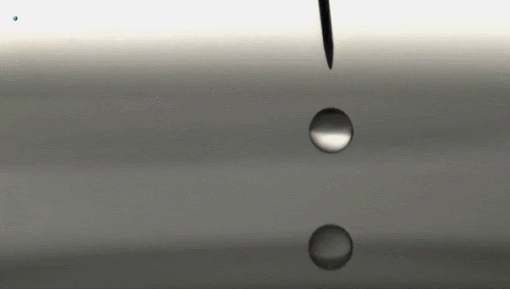Why planning for resilience won't help you thrive during Covid-19.
When you poke the bear, sometimes it bites back.
When we opened up Netflix to New Zealand and removed the geoblocking measures so anyone could subscribe to it, it caused the traditional media companies in New Zealand to take legal action to protect their patch. I don't blame them; during the 3 years we operated Global Mode™ Sky lost ≈$800M in market capitalisation and they hadn’t reduced their reliance on satellite distribution. Spark had invested approximately ≈$80M per annum in content for their streaming service Lightbox, and it wasn't profitable. Spark just sold Lightbox to Sky.
I estimated that between them and TVNZ they spent ≈$10M in retaining three Queen's Counsels and their teams to argue we breached their exclusive content distribution rights and this was a breach of copyright. The reality is even with significant backing and the best copyright lawyer in New Zealand; we were ultimately fighting a social cause and even this day copyright law has not yet been reformed for an Internet-based society.
We went from having a highly profitable business one day, to shutting it down within three weeks and feeling like we had no control. Sound familiar to Covid19? I lost my income, all of it. So how did I survive, I had help? Sadly, my mother had passed away recently; my brothers helped out by letting me with funds from the estate. I sold assets to keep afloat; my beautiful black Audi A4 turbo was a luxury I did not need, relative to keeping a roof over my daughters head. A good friend gave a cheap car & I relied heavily on my study; the frameworks in transactional competency helped our team reinvent the business rapidly. We hired people with different skills in less than 18 months and we grew the business to support 20M users. People call me resilient like it's something I did on my own. But resilience is the exact opposite, resilience comes from working with others and support from your community.
Recently I started to notice a discussion of resilience on social media from our business leaders in news stories. Something didn't make sense, in my experience resilience came from my friends and family, my community. Is resilience the answer to building a PostCOVID business, or adjusting our business models in near real-time? I don’t think so. There are six major phases of Covid19, different states which will vary based on government decisions, vaccine availability and border restrictions. Resilience is merely surviving, and as much as I value spaces to be vulnerable, I can't help but feel we need a change in mindset if we are to thrive PostCOVID19.
I'm not saying we don't need resilience. I could not have survived being taken to court by Sky, Spark, TVNZ, MediaWorks and FOX if I didn't have my family the support of my community. I'm suggesting we need to think accurately and more holistically about how we work. I fear that we will miss the short term and long term opportunities as a nation, and in our companies if we don’t think differently.
Never let a serious crisis go to waste - Winston Churchill
We will see more changes in the next 18 months than in the preceding decade because constraints drive innovation. The rapid adoption of cloud-based systems for remote working has changed the way we work and connect. Ubiquitous adoption of eCommerce and subscription business models by traditional organisations mean the cloud is no longer an advantage. Papatūānuku has done the heavy lifting for us; no longer is there a distinction between environment and economics; they are reliant on each other. Dorothy pulled back the curtain on the Wizard; it turns out governments did have the ability to prevent global warming all along. The world has changed.
Novel & creative solutions are emerging before our eyes every day. The challenge facing the world is two-fold: how to nurture and drive the right positive actions to break out of the chaotic space, and how to sense novel solutions as they emerge so organisations can grasp and build upon those ideas to thrive from the chaos. Change is happening everywhere we look.
Leadership narratives of resilience are not the way forward. In a crisis historical performance and hierarchical organisational structures prevent our traditional leaders from responding to this level of almost real-time change and uncertainty. Events like Covid-19 hijack our brains, making us feel we 'sort of' or 'almost' predicted them because they are retrospectively explainable.
Business risk is not easily measurable, it's a calculation based on probability of data. The way we make decisions has changed as we are operating with incomplete data. The real risk now is that you have a culture that cannot adapt through constant change, and reinvent without data because the status quo has changed.
Inherently as humans when we are under threat, we retrench and rely on what we know works; but the rules of the game are different. Resilience is not going to help us create a modern society. Resilience means we go back to normal, we go back to the way things were; those companies that this approach will find themselves left behind. A PostCOVID world doesn't look like the one you are currently accustomed to operating in.
In his book 'Black Swan' Nasim Taleb stresses there are differences between antifragile and resilient. "Antifragility is beyond resilience or robustness. The resilient resists shocks and stays the same; the antifragile gets better." In the natural world, some things benefit from shocks; situations like COVID19 cause some companies to thrive and grow.
The volatile environment, the randomness disorder and chaos is an environment for creativity as it forces constraints that means people must think differently. While a resilient system resists the shock, and it stays the same, an antifragile system gets better. It's a natural state described throughout science and exists in every condition of life as we can witness the changing of socio-technical systems over time. This occurs in the evolution of culture, politics, technology innovation, economic; right now, it's critical for success as New Zealand emerges from COVID-19 as a green zone, or and perhaps simply because the survival of your organisation relies on it.
The antifragile loves randomness and uncertainty; it loves errors and failure. This distinction is crucial because resilience is about creating certainty in a complicated situation. Antifragility helps us deal with the unknown, to take actions without the need to understand them. Resilience depends on knowing what kinds of stresses you will be subject to and building up defences against those stresses. The resilient resists shocks and stays the same; whereas the antifragile gets better. Antifragility does not require that you know what the stressors will be in advance since you expect to be strengthened by them.
Resilience: a drop disturbs the water, eventually the ripples gradually disperse in amplitude returning to the previous state.
We can thrive with unpredictability and can operate without a complete understanding of our environment. By embodying the mechanisms of antifragility, the ability to thrive from change, we can build socio-technical systems that don't rely on predictive models and thrive when there is uncertainty in any field; politics, business and even in our personal lives. This property of antifragile is behind everything that has changed with time: evolution, culture, ideas. Antifragile is a state beyond resilience and robustness.
When you consider your POSTCovid planning, how are you building a systematic and broad approach to non-predictive decision making? There are going to be at least six distinct phases to COVID-19; antifragile systems will benefit from COVID-19; they will make exponential gains. Resilient companies' gains will be measured and capped. Non-predictive decision making allows us to respond and take action in any situation in which there is randomness, unpredictability, or incomplete understanding of things. Like now, when we don't know when the border will reopen or when a vaccine will become available, the ability to respond to change is characteristic of antifragility, not resilience.
For the foreseeable future, at least the 12-18 months, we will all be operating in a state where highly improbable & uncertain events will be having a substantial impact on company profit. A new set of rules is required to navigate and reinvent within the complex socio‐economic systems that will change due to the pandemic. Antifragility is a mindset that responds to constant change and thrives in chaos.
When it comes to random events, "robust" is certainly not good enough. It will break and the unattainability of perfect robustness; we need a mechanism by which the system regenerates itself continuously by using, rather than suffering from, random events, unpredictable shocks, stressors, and volatility. Critically, most organisations are currently designed to deprive the organisational system of volatility, avoid randomness, and the stressors will harm them. We have been systematically causing the fragility of our economy, our health, political life, education, almost every aspect of our economy for decades. Human-made complex systems tend to develop hierarchies to control and eliminate predictability.
So while the modern world may be increasing in technological knowledge, this has suppressed randomness and volatility stressors. Much of our modern, structured organisational design has been harming us with top-down policies and centralised decision making that don't leverage the conscious collective of our organisations. If there was ever a time to consider redesigning your organisation to thrive from chaos and disruption the time is now.
Continue Reading: How to diagnose antifragility in your organisation in order to thrive from chaos.


